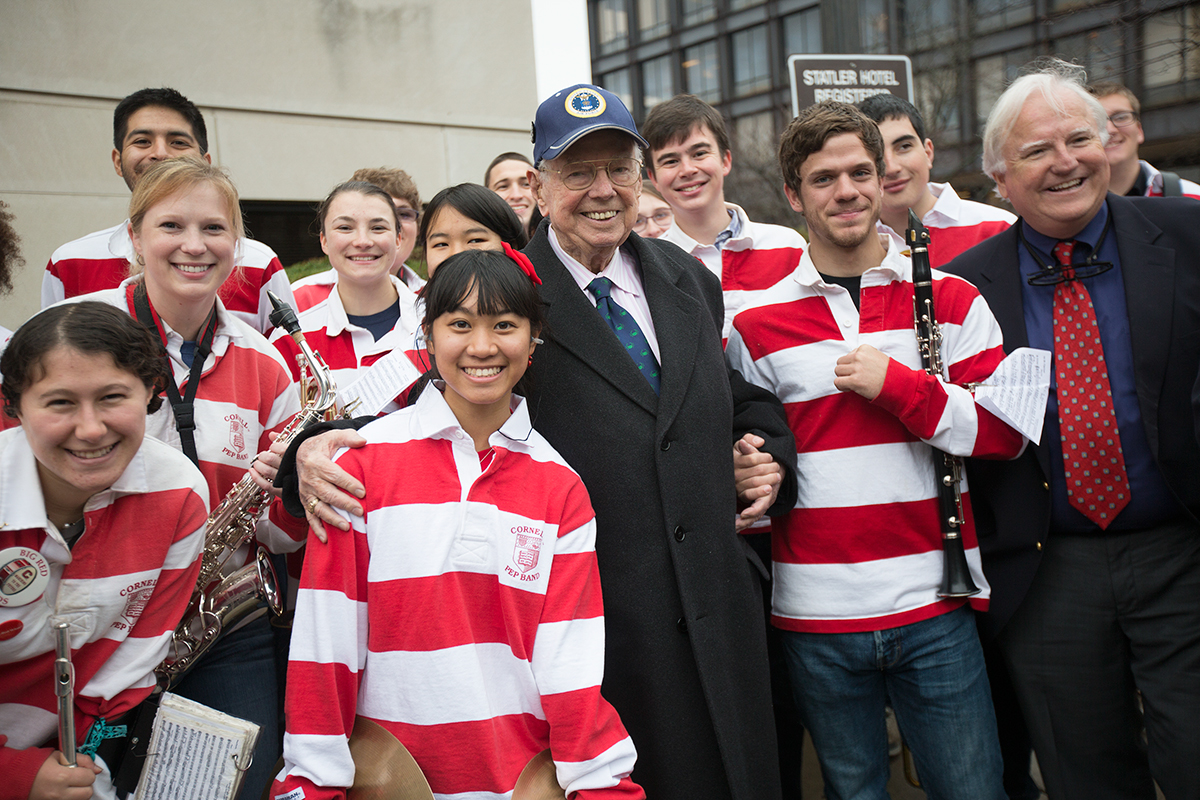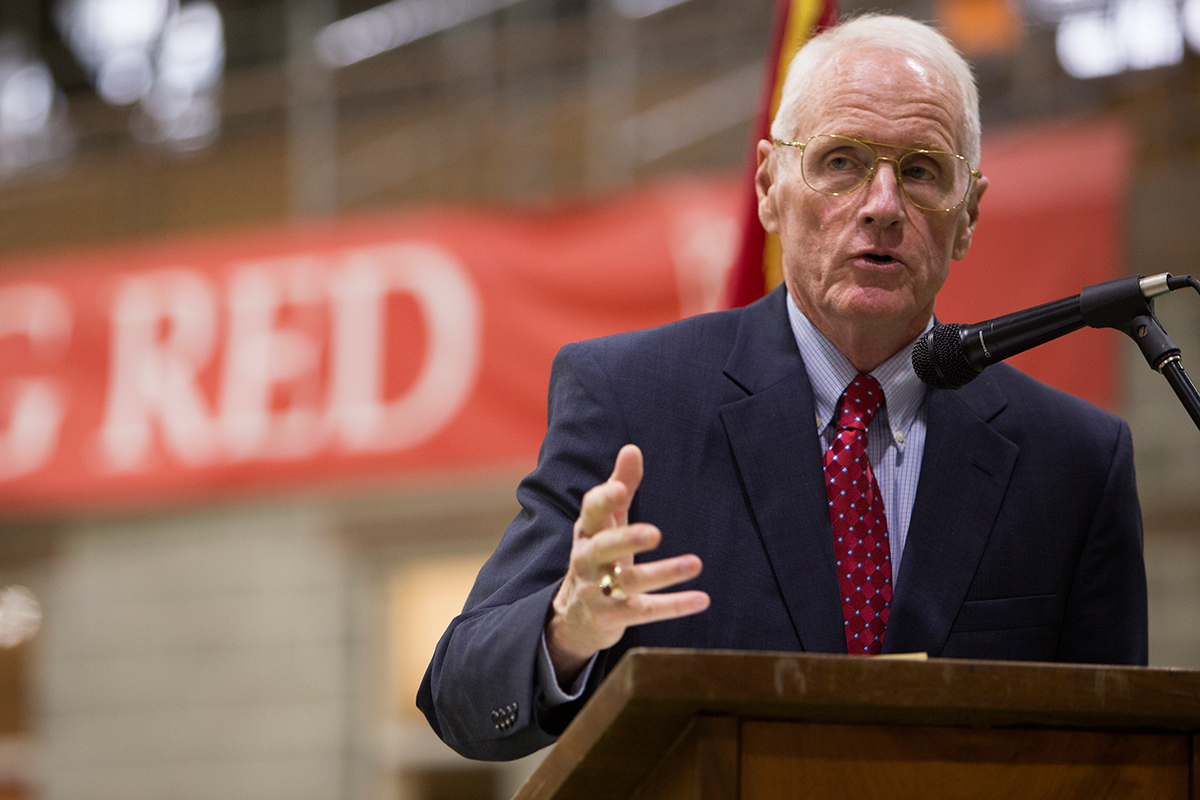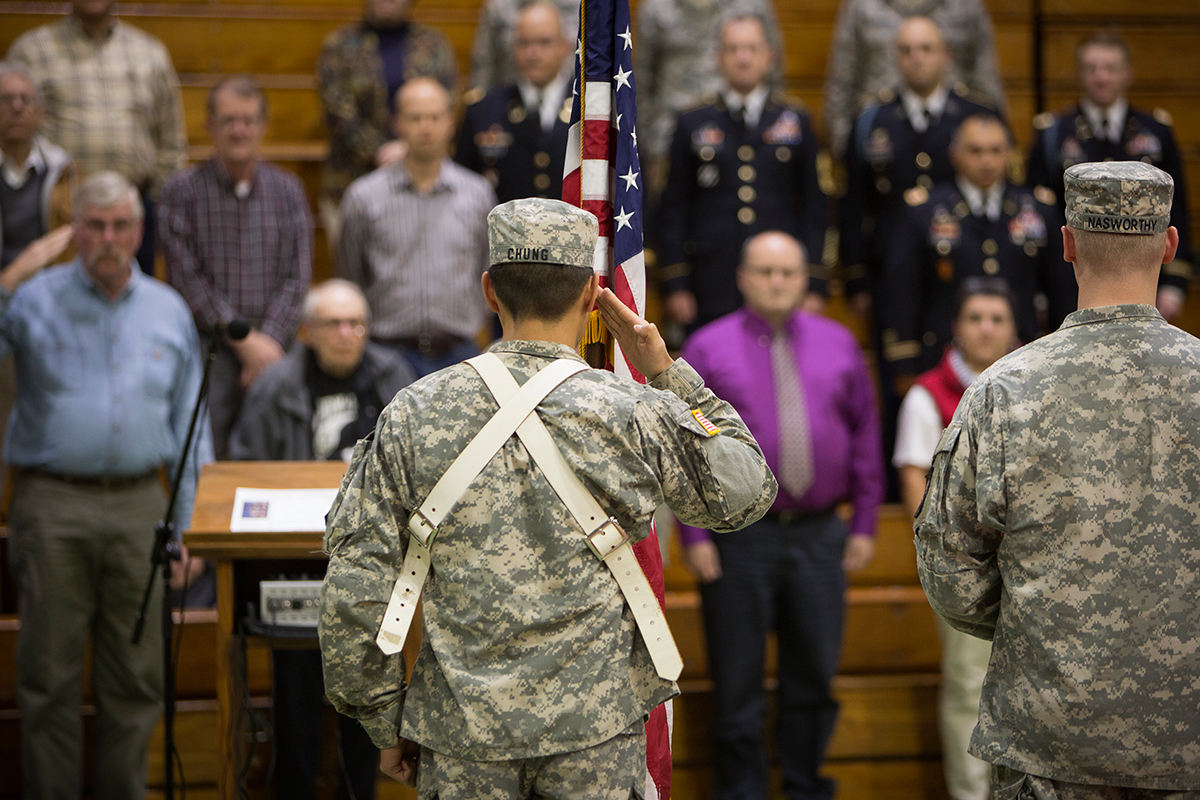Vietnam POW, retired major general reflect on Veterans Day
By Nancy Doolittle



Returning to Cornell Nov. 11 for the first time since he graduated in 1951, Col. Frederick A. Crow Jr. – believed to be the university’s most decorated alumnus of the Vietnam era – was greeted by the Big Red Band, shared his life experiences and received the Elbert P. Tuttle Distinguished Achievement Award from his fraternity, Pi Kappa Alpha. The retired colonel also gave talks on leadership to student groups and introduced retired Maj. Gen. Michael S. Hall ’68, U.S. Air Force, at Cornell’s annual Veteran’s Day Ceremony in Barton Hall.
Crow and Hall noted that almost a century ago the United States was in the midst of World War I. Both also noted Cornell’s longstanding commitment to the armed forces, Hall saying that Cornell produced more officers for WWI than did West Point, and Crow noting that more than 10,000 Cornellians have served the nation in the past 100 years.
Hall, whose military career spanned 27 years, including an assignment as commander of a tactical fighter wing and as senior allied air liaison officer during the first Gulf War, spoke to the “impermanence” of military solutions to conflicts. “If you fail to immediately follow armed conflict with a program of nation-building, you haven’t finished the job, and you’ll pay a dear price,” he said. “What you do in times of peace is just as important as what you do in times of war.”
He also called for greater commitment of all U.S. citizens to the well-being of veterans and for better equipment and training for those in the armed services. Hall is manager of the Ithaca-Tompkins Regional Airport and a partner in PFA Consulting.
In the panel discussion that followed the Barton Hall ceremony, Crow recounted growing up on the Naval base in Pearl Harbor, Hawaii, where his father was stationed, and witnessing the Dec. 7, 1941, bombing of the harbor when he was a teenager. The family had moved into new housing the day before; they ran out of the house in time to see planes going down in flames and a piece of metal scraping the family car.
They were evacuated to the mainland, where Crow served in the U.S. Army Reserves and the Aviation Cadet Program of the U.S. Army Air Forces at the end of WWII. At Cornell, he majored in English, joined Pi Kappa Alpha fraternity and was singled out by Vladimir Nabokov for his work. But Crow left Cornell to start pilot training. Over his next 30 years in the military, Crow witnessed the Bay of Pigs invasion, the Berlin Crisis and the Cuban Missile Crisis.
In 1967, while serving in Thailand, Crow was asked to substitute for another pilot on a mission; near the target, anti-aircraft artillery fire hit his F-4C Phantom. Crow parachuted down not far from Hanoi, North Vietnam. He was captured, tortured and imprisoned for six years, three in solitary confinement.
“We had the same meal every day,” he said, usually cereal with fruit or rice. He and the other POWs communicated with each other by tapping on the walls.
Crow’s son Jeff recounted how the family first heard that Crow was missing in action when an Air Force officer visited them. Three years later the family learned Crow was alive.
When the war ended in 1973, Jeff Crow and Crow’s other family members listened to the news as the returning prisoners were flown to Andrews Air Force Base and later ran across the tarmac to greet him.
Crow received two Silver Stars, the Legion of Merit, two Distinguished Flying Crosses and the Prisoner of War Medal.
Media Contact
Get Cornell news delivered right to your inbox.
Subscribe